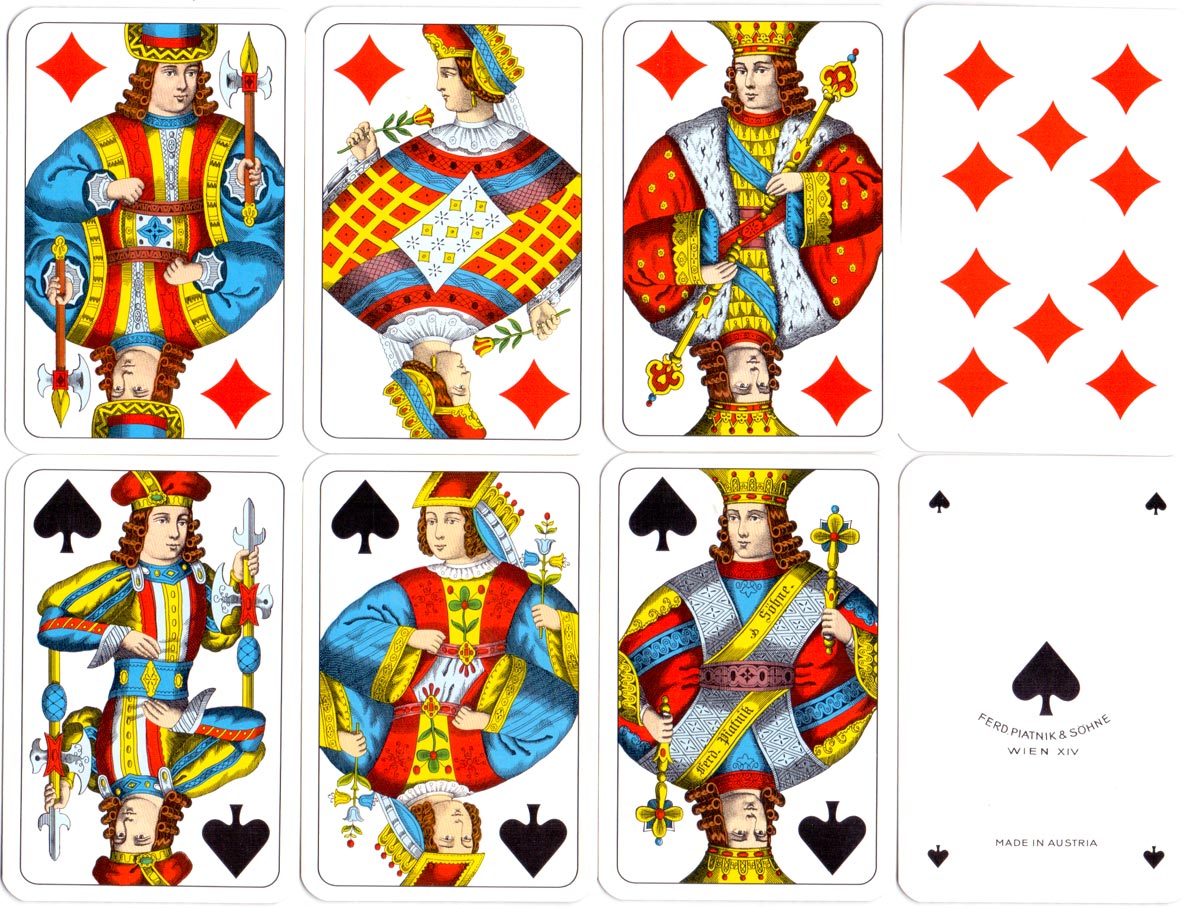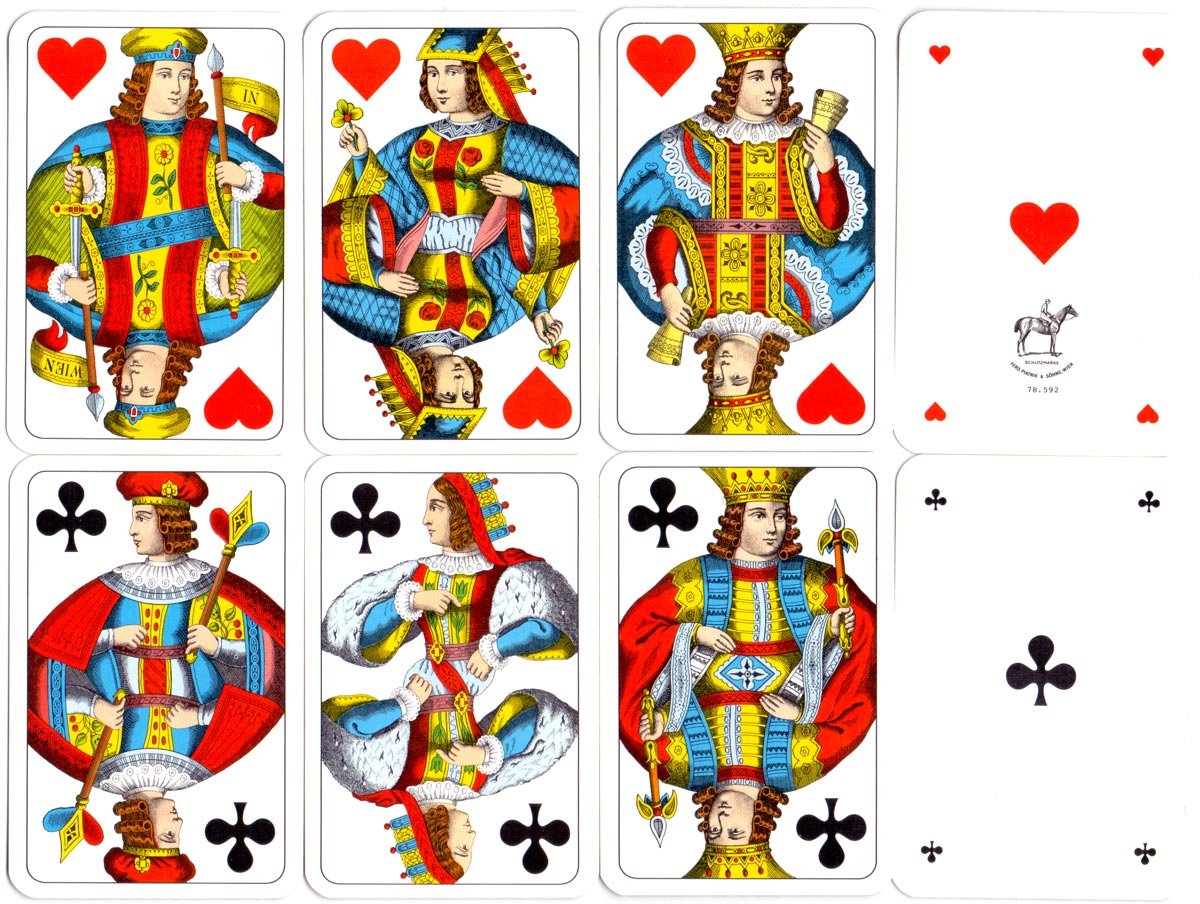Wiener pattern
The Vienna pattern, or Wiener Bild, is a distant relative of the early Lyons pattern. The King of Hearts carries a scroll in his hand.
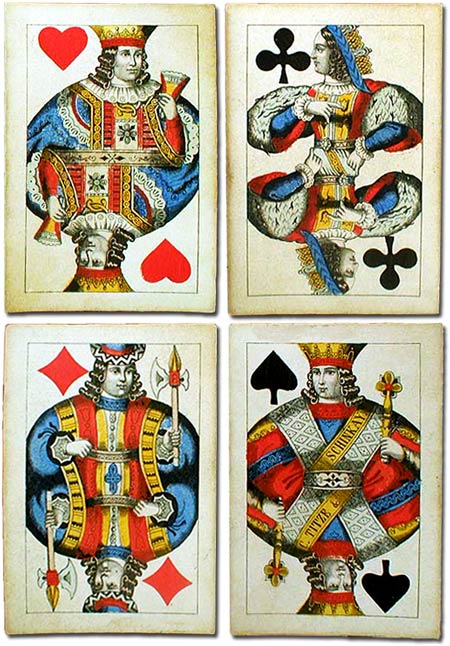
Austrian ‘Wiener’ pattern
The Vienna pattern, or Wiener Bild, a distant relative of the early Lyons pattern, is sometimes nicknamed 'Large Crown' on account of large crowns on the Kings. The King of Hearts carries a scroll in his hand (at first glance it looks like a fan), the Queen of Diamonds sniffs a flower and the King of Spades has a banner bearing the manufacturer's name.
This pattern first appeared in the early 19th century in this characteristically 'geometric' style. The pattern has always been double-ended and mostly in 32-card format, usually without corner indices. It is still produced today by Piatnik of Vienna.
Right: four cards from the Vienna pattern, or Wiener Bild, printed from engraved plates by Titze & Schinkay, mid-19th century.
Below: ‘Schnapskarten Nr.1700’ (Large crown) made by Ferd Piatnik & Söhne, Vienna, 1978. 24 cards in box►
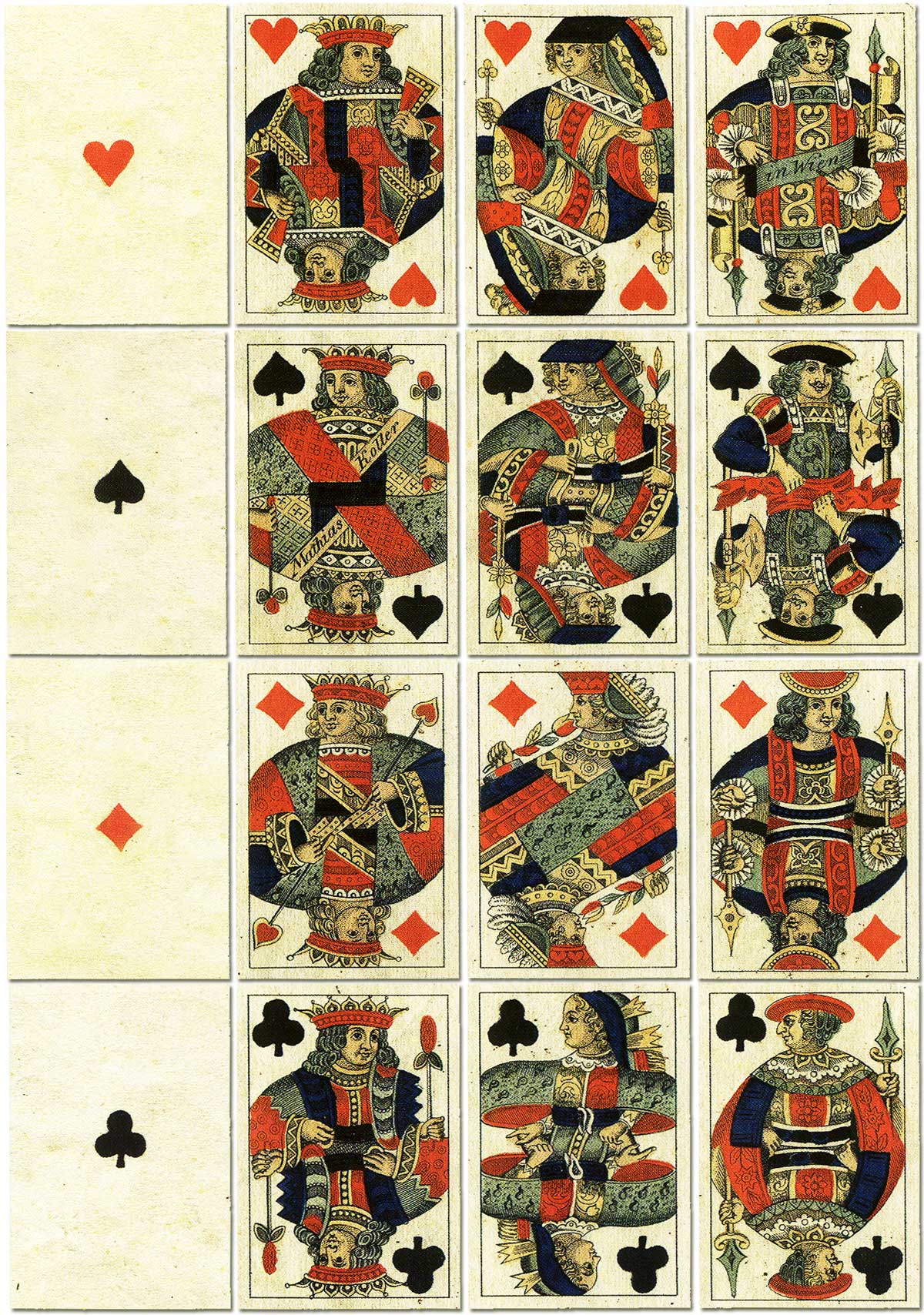
Above: cards from 32-card Vienna pattern, or "Wiener Bild" pack, manufactured by Mathias Koller, Vienna, c.1815.
Small Crown
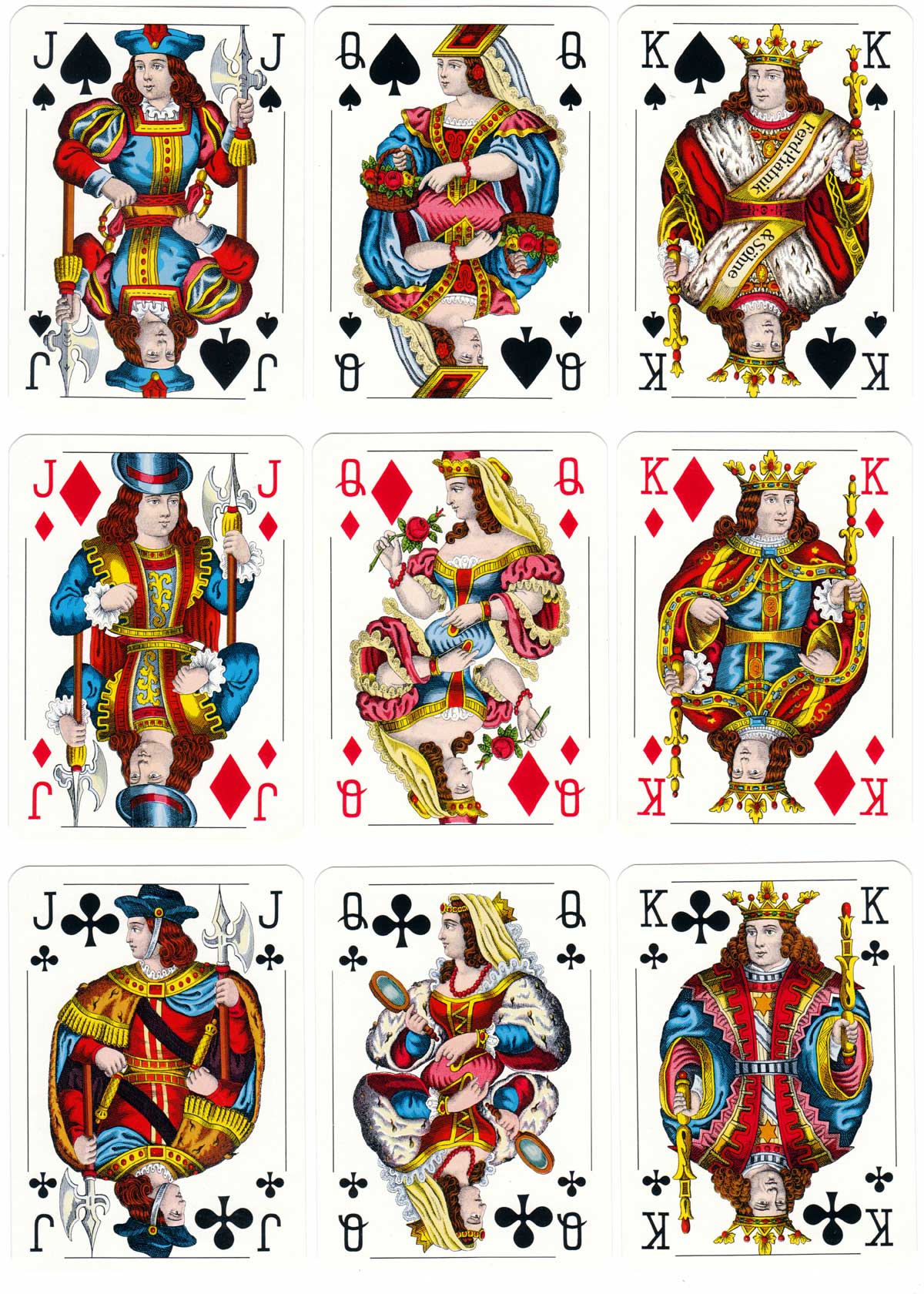
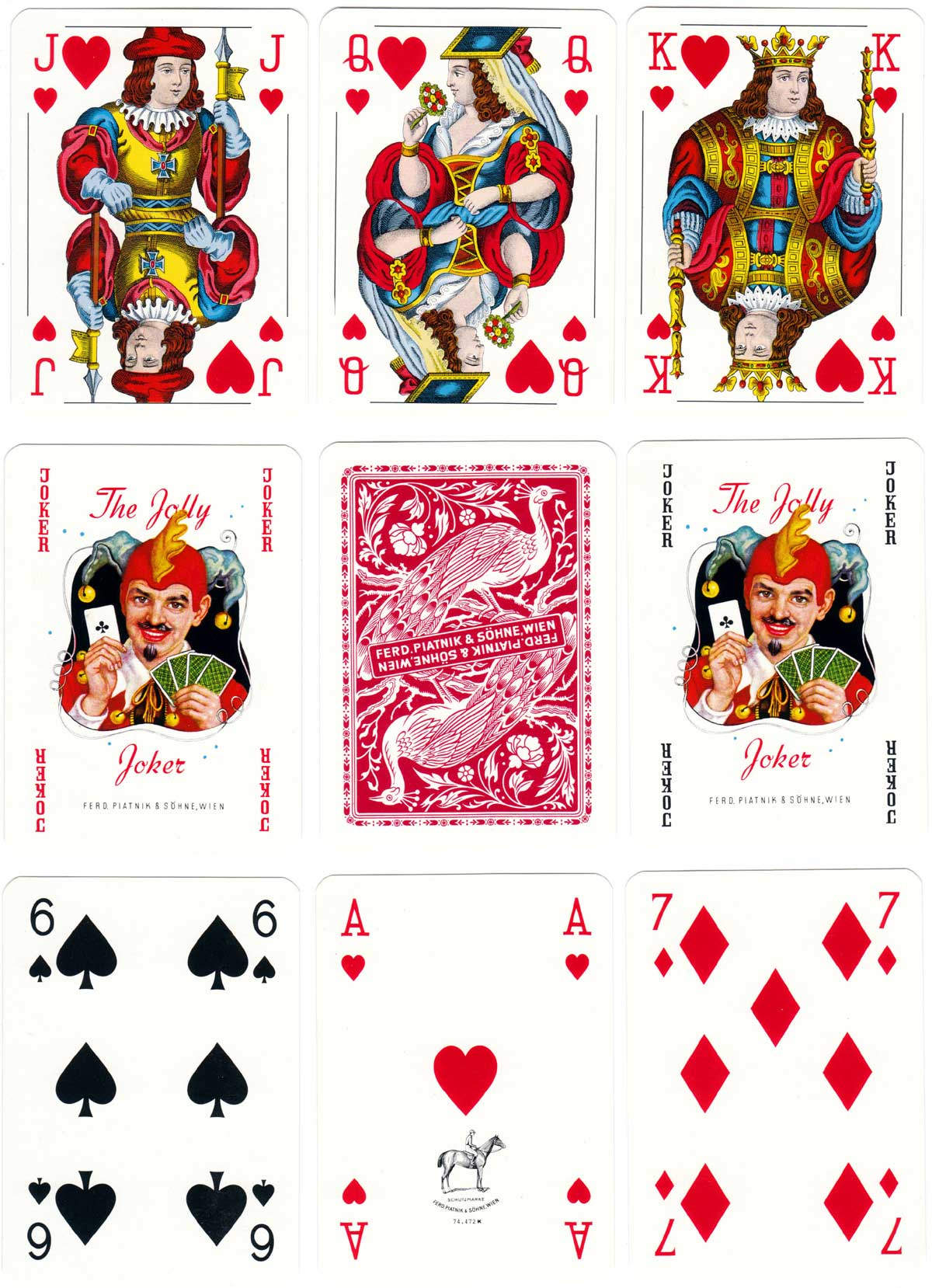
Above: Piatnik Small Crown pattern, 1970s. 52 cards + jokers. Courtesy Rex Pitts.
By Simon Wintle
Spain • Member since February 01, 1996 • Contact
I am the founder of The World of Playing Cards (est. 1996), a website dedicated to the history, artistry and cultural significance of playing cards and tarot. Over the years I have researched various areas of the subject, acquired and traded collections and contributed as a committee member of the IPCS and graphics editor of The Playing-Card journal. Having lived in Chile, England, Wales, and now Spain, these experiences have shaped my work and passion for playing cards. Amongst my achievements is producing a limited-edition replica of a 17th-century English pack using woodblocks and stencils—a labour of love. Today, the World of Playing Cards is a global collaborative project, with my son Adam serving as the technical driving force behind its development. His innovative efforts have helped shape the site into the thriving hub it is today. You are warmly invited to become a contributor and share your enthusiasm.

Related Articles
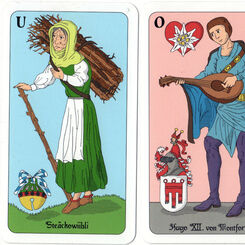
Vorarlberg Büschel Jasskarten
“Vorarlberg Büschel Jasskarten” designed by Austrian artist and typographer Konrad Hämmerle.
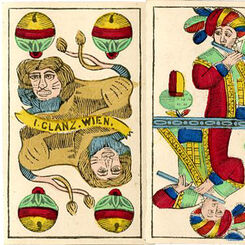
Double-ended German-suited pack by Josef Glanz, Vienna.
From the British Museum collection.
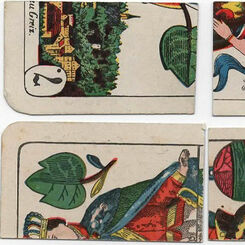
Notgeld - Emergen¢y Money
Notgeld - Emergency Money - was in rare cases issued on playing cards.
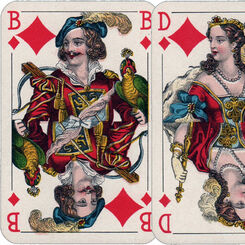
Piatnik No.97
Non-standard French-suited cards published by Ferd Piatnik & Sõhne, Vienna, c.1940s.
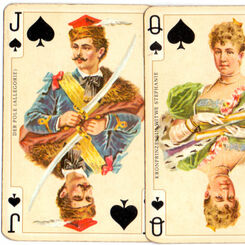
Kaiser Jubiläum
Kaiser Jubiläum Imperial playing cards made in Austria by Ferd Piatnik & Sons, Vienna.
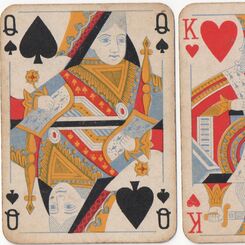
48: Ferdinand Piatnik & Sons
Ferd. Piatnik produced a very large range of cards with many different standard and non-standard pat...
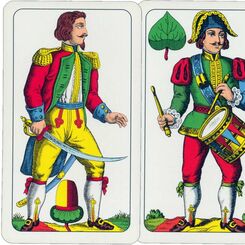
Salzburger Pattern
Salzburger pattern by Ferd. Piatnik & Söhne, Vienna
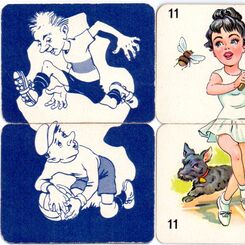
Tops and Tails
‘Sports Tops and Tails’ No.290 manufactured by Ferd Piatnik & Sons, Vienna, c.1950s.
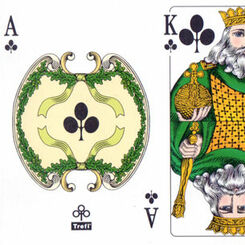
Rhineland Pattern by KZWP
Rhineland pattern by KZWP.

El Jokey by Piatnik, 1990s
‘El Jokey’ Spanish-suited pack by Piatnik & Sons, Vienna, 1990s
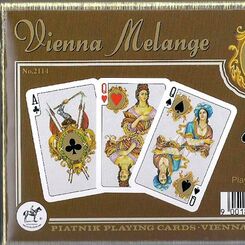
Vienna Melange
“Vienna Melange” Playing Cards by Piatnik with a historical feel representing the four races that ma...

Bohemian Pattern
The Bohemian Pattern, sometimes called the Prager Pattern, has roots in the 16th century.
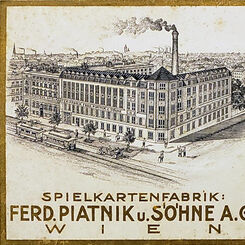
Ferd. Piatnik & Söhne
Ferdinand Piatnik was born in Ofen on October 14, 1819.
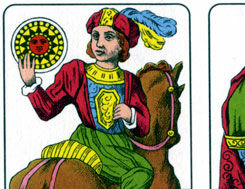
Piacentine Pattern
Piacentine Pattern, several double-ended versions.
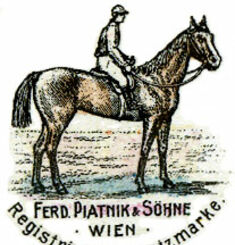
Piatnik Tarock
Deck of "Industrie und Glück" or "Rural Scenes" tarock cards manufactured by Ferd Piatnik & Söhne, V...
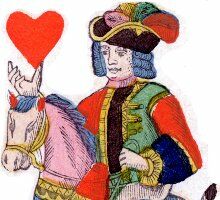
Tarock Cards
The earliest Tarot decks originated in Italy in the fifteenth century, with Italian suit symbols. Ho...
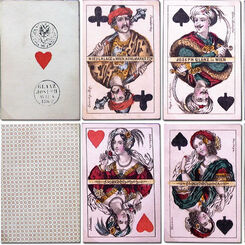
Joseph Glanz, 1862
Playing cards depicting Turkish and Greek rulers manufactured by Joseph Glanz, Vienna, Austria, 1862...
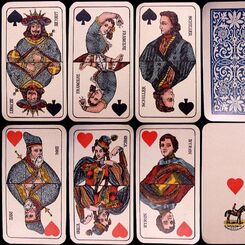
Literary Figures
Non-Standard Literary Figures playing cards manufactured by Ferd. Piatnik & Söhne A.G., Vienna, 1924...
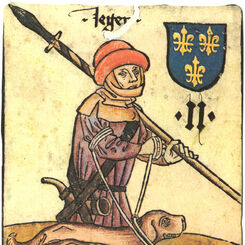
Hofamterspiel, c.1460
Hofamterspiel, c.1460
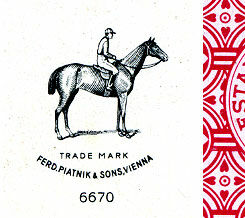
Piatnik & Sons for the“Estanco de Naipes del Perú”
Playing Cards made by Piatnik & Sons for the“Estanco de Naipes del Perú”, c.1960.
Most Popular
Our top articles from the past 60 days


